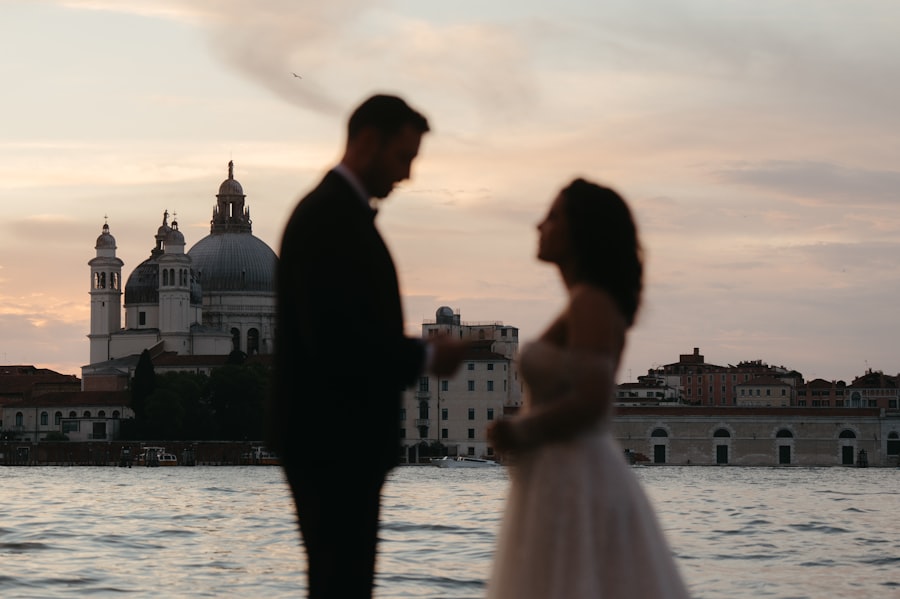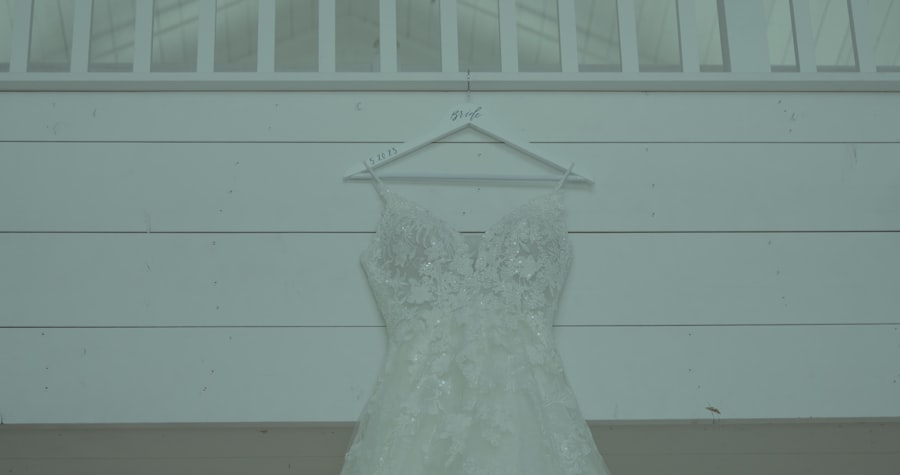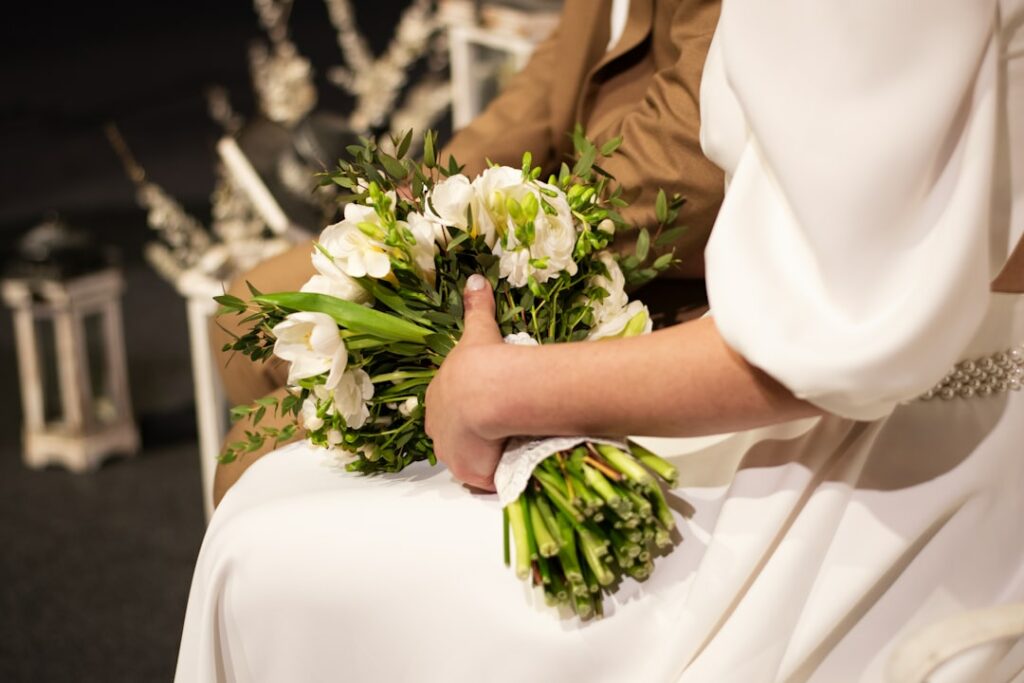A humanist wedding is a celebration of love and commitment that is grounded in humanist principles, which emphasise reason, ethics, and the importance of human experience. Unlike traditional religious ceremonies, humanist weddings are non-religious and focus on the couple’s personal beliefs and values. This type of ceremony allows you to create a unique and meaningful experience that reflects your individuality and shared journey.
You can incorporate personal stories, favourite quotes, and even music that resonates with both of you, making the day truly yours. In essence, a humanist wedding is about celebrating your relationship in a way that feels authentic to you. It provides the freedom to craft a ceremony that aligns with your worldview, whether that be secular, spiritual, or somewhere in between.
You have the opportunity to express your love in a setting that feels comfortable and significant, surrounded by family and friends who support your union. This approach to marriage allows for creativity and personal expression, ensuring that your special day is as unique as your relationship.
Summary
- A humanist wedding is a non-religious ceremony that focuses on the couple and their values, beliefs, and love for each other.
- Humanist weddings have a rich history dating back to ancient Greece and Rome, but they have become more popular in recent years as an alternative to traditional religious ceremonies.
- When planning a humanist wedding ceremony, couples have the freedom to choose their own readings, music, and symbolic rituals that reflect their personalities and relationship.
- Humanist wedding vows and readings are typically non-religious and can be written by the couple themselves or chosen from a wide range of literature, poetry, and music.
- Choosing a humanist celebrant is an important decision, as they will be responsible for conducting the ceremony and helping the couple create a meaningful and personal wedding experience.
The History of Humanist Weddings
The concept of humanism has its roots in the Renaissance, but it has evolved significantly over the centuries. In the context of weddings, humanism began to gain traction in the 20th century as society became more secular and individuals sought alternatives to traditional religious ceremonies. The first recorded humanist wedding took place in 1953 in the UK, marking a pivotal moment for couples who wished to celebrate their love without religious connotations.
This movement has since grown, with many people embracing humanist principles as a way to honour their relationships.As you delve into the history of humanist weddings, you’ll discover that they have become increasingly popular in recent decades. The rise of individualism and the decline of religious authority have led many couples to seek ceremonies that reflect their personal beliefs rather than conforming to societal expectations.
Today, humanist weddings are recognised as a legitimate form of marriage in various countries, including the UK, where they are celebrated with the same respect and significance as traditional religious ceremonies.
Planning a Humanist Wedding Ceremony

When it comes to planning your humanist wedding ceremony, the first step is to envision what you want your day to look like. This involves considering the venue, the atmosphere you wish to create, and the elements that are most important to you as a couple. You might choose an outdoor setting that reflects your love for nature or an intimate indoor space that feels warm and inviting.
The beauty of a humanist wedding lies in its flexibility; you can select a location that resonates with your shared experiences or aspirations. Once you’ve settled on a venue, it’s time to think about the structure of your ceremony. Humanist weddings typically include readings, music, and personal vows, all of which can be tailored to suit your preferences.
You may want to include contributions from family members or friends, allowing them to share their thoughts on your relationship. This collaborative approach not only enriches the ceremony but also strengthens the bonds between you and your loved ones. As you plan, remember that this day is about celebrating your love story, so let your creativity shine through every detail.
Humanist Wedding Vows and Readings
Crafting your wedding vows is one of the most intimate aspects of a humanist ceremony. Unlike traditional vows that may follow a prescribed format, you have the freedom to express your feelings in your own words. This is an opportunity for you to articulate what your partner means to you and what commitments you wish to make for your future together.
You might choose to include personal anecdotes or references to shared experiences that highlight the depth of your connection. In addition to vows, selecting readings can add another layer of meaning to your ceremony. You may opt for poetry, literature, or even song lyrics that resonate with both of you.
These readings can serve as reflections on love, commitment, and partnership, enhancing the emotional atmosphere of the day. By choosing pieces that speak to your relationship, you create a personalised narrative that encapsulates your journey together. This thoughtful approach ensures that every word spoken during the ceremony holds significance for both you and your guests.
Choosing a Humanist Celebrant
Selecting the right humanist celebrant is crucial for ensuring that your ceremony reflects your values and vision.
A celebrant plays a pivotal role in guiding you through the process and facilitating the ceremony itself.When choosing a celebrant, consider their experience and approach to humanist weddings.
You may want someone who shares similar beliefs or has a style that resonates with you both. It’s essential to meet with potential celebrants beforehand to discuss your ideas and gauge their understanding of what you envision for your day. A good celebrant will take the time to get to know you as a couple, allowing them to craft a ceremony that truly represents your relationship.
They should be open to incorporating personal elements and flexible enough to adapt their style to suit your preferences. By establishing a rapport with your celebrant, you can ensure that they will deliver a heartfelt ceremony that captures the essence of your love story. This partnership is vital in creating an atmosphere where you feel comfortable expressing yourselves on such an important occasion.
Personalising Your Humanist Wedding

Personalisation is at the heart of any humanist wedding ceremony. From the moment guests arrive until the final moments of the celebration, every detail can reflect who you are as a couple. Consider incorporating elements that showcase your shared interests or hobbies—perhaps a themed decor inspired by your favourite books or films.
You might also include interactive elements such as a guest book where attendees can share their wishes or advice for your future together. Another way to personalise your ceremony is through rituals that hold special meaning for both of you. This could be something as simple as lighting a unity candle or planting a tree together as a symbol of growth and commitment.
These rituals not only enhance the emotional depth of the ceremony but also create lasting memories for you and your guests. By infusing personal touches throughout the day, you ensure that your wedding is not just an event but a true reflection of your love story.
Humanist Wedding Traditions and Symbolism
While humanist weddings are non-religious, they can still incorporate traditions and symbols that resonate with you as a couple. Many couples choose to adapt traditional customs in ways that align with their values. For instance, instead of exchanging rings as a symbol of commitment, you might opt for other tokens that hold personal significance—perhaps matching bracelets or even something handmade.
Symbolism plays an important role in conveying meaning during your ceremony. You might choose to include elements such as flowers representing love or stones symbolising strength and stability in your relationship. These symbols can serve as powerful reminders of the commitments you’ve made to one another and can be woven into various aspects of the ceremony—from decor to spoken words.
By thoughtfully selecting symbols that resonate with both of you, you create layers of meaning that enrich your wedding experience.
The Legalities of Humanist Weddings in the UK
In the UK, while humanist weddings are increasingly popular, it’s essential to understand their legal status. Currently, humanist ceremonies are not legally recognised in England and Wales; however, they are in Scotland and Northern Ireland. This means that if you’re planning a humanist wedding in England or Wales, you’ll need to have a separate legal ceremony at a registry office before or after your humanist celebration.
To ensure everything goes smoothly, it’s advisable to consult with local authorities regarding the legal requirements for marriage in your area. This may involve submitting notice forms and providing necessary documentation ahead of time. By understanding these legalities early on in your planning process, you can focus on creating a meaningful ceremony without any last-minute stress regarding compliance with marriage laws.
In conclusion, embracing a humanist wedding allows you to celebrate love in a way that is deeply personal and reflective of who you are as individuals and as partners. From crafting heartfelt vows to selecting meaningful symbols and traditions, every aspect can be tailored to create an unforgettable experience for both you and your guests. As society continues to evolve towards more inclusive practices surrounding marriage, humanist weddings stand out as a beautiful testament to love grounded in shared values and mutual respect.
If you’re considering a humanist wedding and are curious about what it entails, you might find the article “Humanist Weddings: What You Need to Know” particularly enlightening. This comprehensive guide explores the unique aspects of humanist weddings, offering insights into how these ceremonies are personalised to reflect the values and personalities of the couple. It’s an excellent resource for anyone looking to understand the structure, content, and charm of a humanist wedding. You can read more about it here.
How Does a Gay Marriage Celebrant Contribute to Humanist Weddings?
A gay marriage celebrant embracing equality role plays a vital part in humanist weddings by fostering inclusivity and love. They craft ceremonies centered on personal values, mutual respect, and authenticity. This approach ensures that each couple’s unique bond is honored, breaking barriers and celebrating the true essence of partnership without prejudice.

